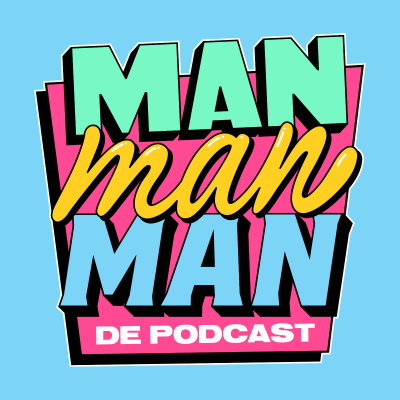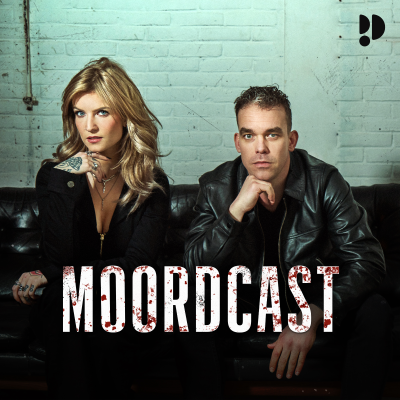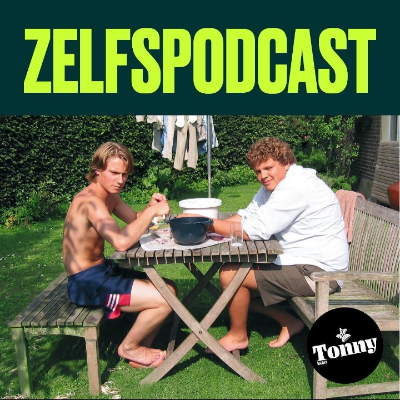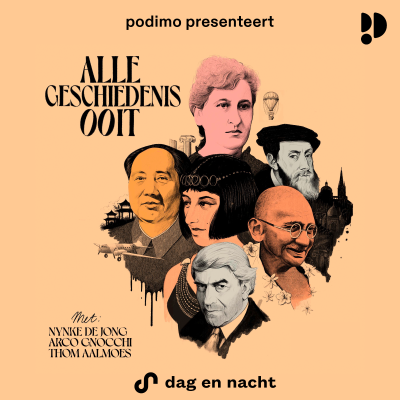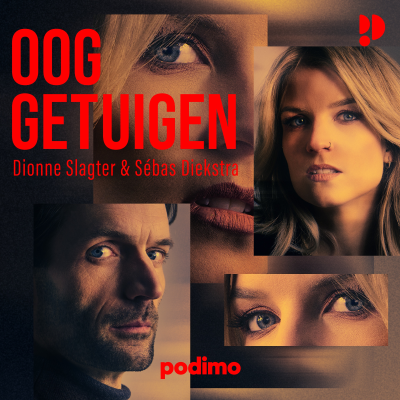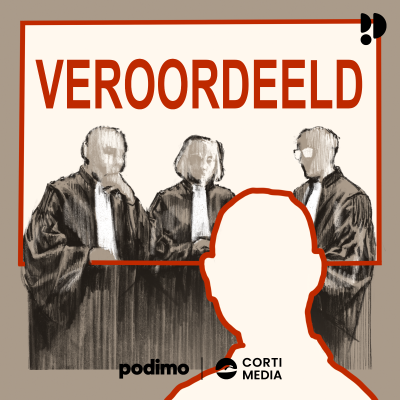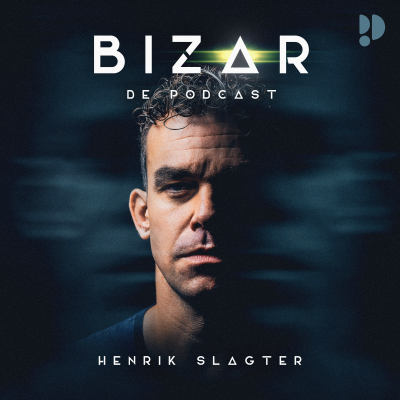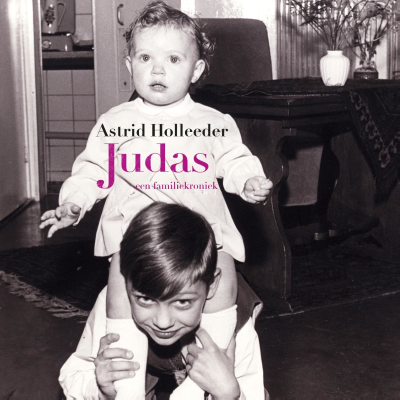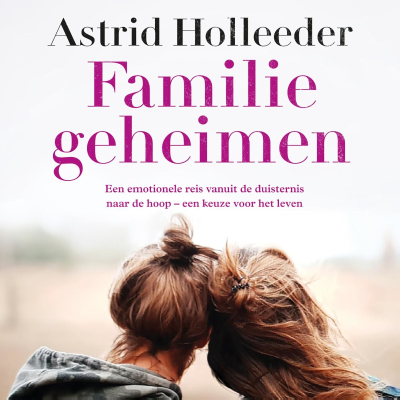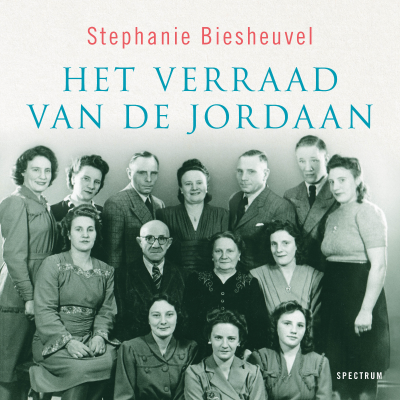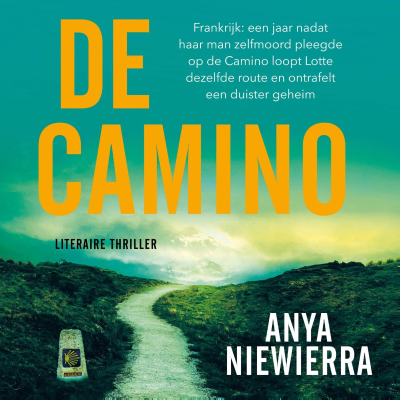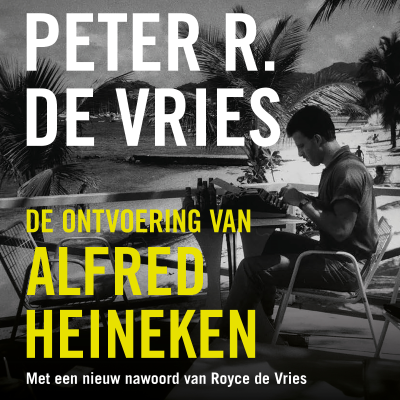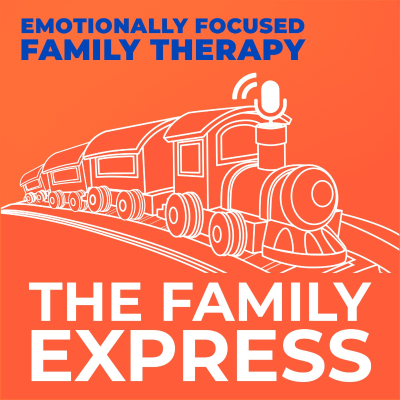
The Family Express
Podcast door Kathryn De Bruin and Ronda Evans
Deze podcast is gratis te beluisteren op alle podcastplatformen en de Podimo-app zonder abonnement.
Alle afleveringen
25 afleveringenWelcome back for the next journey of The Family Express Podcast with Kathryn de Bruin, LMFT and Ronda Evans, LMFT where our destination is resilient and connected families. Our guest speaker is Dr. Tat-Ying, a dual family medical physician and EFFT family therapist located in Toronto, Canada, who specializes in groups. All Aboard ! Thank you for listening! Kathryn de Bruin is an ICEEFT Certified EFT Trainer. Kathryn and Ronda are both licensed marriage and family therapists, EFT supervisors and therapists, and AAMFT Approved Supervisors. You can follow Kathryn de Bruin Facebook [https://www.facebook.com/deBruinTherapy] YouTube [http://www.youtube.com/@kathryndebruinfamilytherap904] IG [http://kathryndebruin_therapy/] Yelp [http://www.yelp.com/biz/kathryn-de-bruin-san-diego-2] Google + [https://plus.google.com/104677859395950862785/about] Twitter [https://twitter.com/deBruin_Therapy] Website [http://www.kathryndebruin.com/] You can follow Ronda Evans Facebook [https://www.facebook.com/p/Revitalizing-Relationships-PLLC-100064260060735/?_rdr=&eav=AfYuo3Th9i4U3Wb3bNLCOr6tBQtVmUHm6DpXe8WHT915J1x-Qy_fMgoH2a51W72t-sI&paipv=0] Facebook [https://www.facebook.com/groups/1145476806646029] IG [http://rondaevans_therapy/] LinkedIn [http://www.linkedin.com/in/%20rondacostonevans] Website [http://www.rondaevans.com/] You can connect with Dr. Tat-Ting
Welcome back for the next journey of The Family Express Podcast with Kathryn de Bruin, LMFT and Ronda Evans, LMFT where our destination is resilient and connected families. Today is our second installment in the Attachment in Action Series: Pre-School Stage (3-4 years old). All Aboard ! 1:00. A main developmental aspect of this age/stage is the growing ability of perception and absorbing information into informational processing and emotional processing systems. Their thinking is absolutist (black and white). 5:30. Being exposed to differing perspectives represents an opportunity to learn and practice the skill of negotiation in communication/language. This reframes negotiation as a helpful, adaptive skill to learn and practice in the safety of the dyadic interaction. 8:00. In negotiation, both kids and caregivers walk away with something, and not only a memory of a power struggle. The benefits of negotiation are: kids learn to consider differing perspectives; kids learn to translate their internal wants, not wants, desires into verbal language that an adult can understand (self expression, and an emotional need of feeling valued); and, the relationship is intact. 12:20. We use an example from the book Attachment in Family Therapy to describe the stressor (conflicting needs and priorities between adult and child) and different ways parents can respond in this moment. 13:40. Authoritarian parent/caregiver response. The downside of this response is it triggers a power struggle, and the child does not learn differing perspectives and needs of others, and learns to inhibit (not have a voice, inhibit feelings, and feels they don't matter). The pre-school years are a good opportunity to give your child "safe repetitions" (practice). 16:30. Permissive parent/caregiver response. The downside of this response is the child learns they are in charge and in control and they feel overlooked, and not secure. Kids are not provided a predictable structure, rules and sense of security. 23:00. Re-capping the parent's response from the example in the book which focuses on helping the kid develop the skill of taking other people's perspectives through this negotiation conversation. 26:00. The parent response that values negotiation communication is parenting strategy that keeps the child's developmental stage and needs at the forefront of the dyadic interaction for the benefit of the child. 28:30. We must consider the context that families are in -- generational, economic, threats and dangers. Parent responses make sense in the context. Thank you for listening! Kathryn de Bruin is an ICEEFT Certified EFT Trainer. Kathryn and Ronda are both licensed marriage and family therapists, EFT supervisors and therapists, and AAMFT Approved Supervisors. You can follow Kathryn de Bruin Facebook [https://www.facebook.com/deBruinTherapy] YouTube [http://www.youtube.com/@kathryndebruinfamilytherap904] IG [http://kathryndebruin_therapy/] Yelp [http://www.yelp.com/biz/kathryn-de-bruin-san-diego-2] Google + [https://plus.google.com/104677859395950862785/about] Twitter [https://twitter.com/deBruin_Therapy] Website [http://www.kathryndebruin.com/] You can follow Ronda Evans Facebook [https://www.facebook.com/p/Revitalizing-Relationships-PLLC-100064260060735/?_rdr=&eav=AfYuo3Th9i4U3Wb3bNLCOr6tBQtVmUHm6DpXe8WHT915J1x-Qy_fMgoH2a51W72t-sI&paipv=0] Facebook [https://www.facebook.com/groups/1145476806646029] IG [http://rondaevans_therapy/] LinkedIn [http://www.linkedin.com/in/%20rondacostonevans] Website [http://www.rondaevans.com/]
Welcome back for the next journey of The Family Express Podcast with Kathryn de Bruin, LMFT and Ronda Evans, LMFT where our destination is resilient and connected families. Today is our second installment in the Attachment in Action Series: Toddler Stage. All Aboard ! 3:30. Clear and direct and sequential language because the toddler takes in information and starts to draw conclusions. 5:50. Kathryn provides two side by side examples of an interaction between her and her toddler son: one example in which there is a rupture of conflicting needs/desires, and another example in which there is a goal-directed partnership interaction. 10:30. Toddlers can learn very early about rupture and repair. 11:00. Parents/Caregivers now have two roles of nurturer and protector, and balance the needs of the toddler for exploration with parents need for setting guidelines/rule sets. Parents need to provide/foster a safe enough environment. 13:30. Another conflicting need is when two caregivers disagree on navigating the needs for nurturing exploration and tending to safety. 14:00. If the two parents have significant differences in their parenting “style” and their own comfort level of balancing developmental needs of exploration and safety, then we can see distress emerge in individuals or in the family. 17:55. When toddlers are under distress, we may see them “adapt” and adopt certain strategies. #1. Toddler Caregiving strategy of parent; perhaps keeping a smile on their face. #2 Toddler Compliant strategy; milder form is Performative strategy; both are about please parent, and fear of punishment, and be good and make parent happy. #3 Toddler Emotional Dysregulation Angry/Helpless; the cue is the parents responsiveness is unclear, inconsistent, ambiguous; so the toddler can’t figure out the contingency; motivated to keep parents attention to maintain the attachment; 25:50. Contingencies within a household can be slightly different between parents and the toddler can still figure out the contingency and so the toddler experiences their parent-child contingency as consistent and predictable. 27:40. In these strategies the goal of the toddler becomes to keep the parent/attachment person with them, and the toddler lets go of the goal of personal development. 28:00. In an ideal world, how we respond to emotion and distress and the dance of dyadic attachment is in the background, and more importance and priority is put on the development of the toddler/child. 29:00. Treatment considerations in EFFT: think and assess systemically; how does the child’s behavior and affective demonstrations speak to these strategies in dyadic attachment. 33:40. Balancing early childhood intervention in the toddler versus systemic, attachment-based framework/lens and treatment considerations. 35:00. Metaphor of family therapist being the general practitioner with holistic assessment of the whole system, and then refer to specialist for specific, or individual needs. Thank you for listening! Kathryn de Bruin is an ICEEFT Certified EFT Trainer. Kathryn and Ronda are both licensed marriage and family therapists, EFT supervisors and therapists, and AAMFT Approved Supervisors. You can follow Kathryn de Bruin Facebook [https://www.facebook.com/deBruinTherapy] YouTube [http://www.youtube.com/@kathryndebruinfamilytherap904] IG [http://kathryndebruin_therapy/] Yelp [http://www.yelp.com/biz/kathryn-de-bruin-san-diego-2] Google + [https://plus.google.com/104677859395950862785/about] Twitter [https://twitter.com/deBruin_Therapy] Website [http://www.kathryndebruin.com/] You can follow Ronda Evans Facebook [https://www.facebook.com/p/Revitalizing-Relationships-PLLC-100064260060735/?_rdr=&eav=AfYuo3Th9i4U3Wb3bNLCOr6tBQtVmUHm6DpXe8WHT915J1x-Qy_fMgoH2a51W72t-sI&paipv=0] Facebook [https://www.facebook.com/groups/1145476806646029] IG [http://rondaevans_therapy/] LinkedIn [http://www.linkedin.com/in/%20rondacostonevans] Website [http://www.rondaevans.com/]
Welcome back for the next journey of The Family Express Podcast with Kathryn de Bruin and Ronda Evans where our destination is resilient and connected families. Our guest today is Liliana Baylon, Ph. D. and we discuss integrating play therapy into EFFT when there are families with kids under the age of 12. All Aboard ! 1:00. Play is the way that a baby/infant explores and experiences the world around them. Play and fun is a central need for infants/children. Children communicate using their body and then they rely on the adult to organize their experience and body expression using language. 5:00. Their body expression and play communicates something of their experience, and through play we can create an open channel where we can engage with them about their experience and help them. 6:30. Play therapy intervention: Create a playful game from using a light switch to help a child express themselves non-verbally. 7:30. Hot potato play therapy intervention: whoever catches the hot potato needs to add something to the current topic of conversation. 10:30. Bringing playfulness to the conversation helps inoculate the conversation and reduces the emotional intensity. 11:30. Play therapy intervention: Using any turn-taking game to take turns sharing something helps to reduce the risk and the emotional intensity. Challenge yourself: how can I use this game in a family session to facilitate family connecting and talking? 15:30. Liliana tells a story of how she uses a game called “Sabo” with her own adolescent family relatives to facilitate a conversation about their language, tradition, change and loss in a playful, safe container of the game. 18:50. As a family therapist, understand the reason/clinical rationale for why you’re incorporating that particular play intervention with a particular family. 20:00. Kathryn tells a story of how she challenged herself to use limited play therapy tools and interventions with a family with young children to see how far she could go with conversation only. 25:00. Track which topics increase distress/stress/arousal in the session, and does the parent attune to the distress, and how does each parent respond to the distress signal? 25:30. Liliana suggests having play dough and scented markers and fidgets available for arousal regulation. 26:50. Understand the benefits of play therapy tools such as play dough (tactile) to include this in your session note such as using play dough for co-regulation. Thank you for listening! Kathryn de Bruin is an ICEEFT Certified EFT Trainer. Kathryn and Ronda are both licensed marriage and family therapists, EFT supervisors and therapists, and AAMFT Approved Supervisors. You can follow Kathryn de Bruin Facebook [https://www.facebook.com/deBruinTherapy] YouTube [http://www.youtube.com/@kathryndebruinfamilytherap904] IG [http://kathryndebruin_therapy/] Yelp [http://www.yelp.com/biz/kathryn-de-bruin-san-diego-2] Google + [https://plus.google.com/104677859395950862785/about] Twitter [https://twitter.com/deBruin_Therapy] Website [http://www.kathryndebruin.com/] You can follow Ronda Evans Facebook [https://www.facebook.com/p/Revitalizing-Relationships-PLLC-100064260060735/?_rdr=&eav=AfYuo3Th9i4U3Wb3bNLCOr6tBQtVmUHm6DpXe8WHT915J1x-Qy_fMgoH2a51W72t-sI&paipv=0] Facebook [https://www.facebook.com/groups/1145476806646029] IG [http://rondaevans_therapy/] LinkedIn [http://www.linkedin.com/in/%20rondacostonevans] Website [http://www.rondaevans.com/] You can contact Liliana Baylon Website: www.lilianabaylon.com [http://www.lilianabaylon.com/] https://linktr.ee/lilianabaylon [https://linktr.ee/lilianabaylon]
Welcome back for the next journey of The Family Express Podcast with Kathryn de Bruin and Ronda Evans where our destination is resilient and connected families. This is the first installment of our Attachment in Action Series. In this episode we focus on attachment in the infant stage. We underscore the importance of assessing for the emotional and relational context at the time of birth and the infant stage, and we provide overview of caregiver responding to baby distress signals. All Aboard ! 1:20. Assessment is about taking a developmental history that includes the contextual, emotional and relational attachment history. 2:50. This Attachment in Action Series and the accompanying conversations are taken from the content in the book called “Attachment and Family Therapy” by Patricia Crittenden, Rudi Dallos, Andrea Landini, Kasia Kozlowska 4:30. Baby/Newborn/Infant stage means that there is joy, and loss because there is change. 5:30. A developmental history needs to include talking about birth because birth can bring death or trauma or loss. 6:50. When a baby arrives, there is change and the arrival of conflicting needs. Where there is change, there is inherent loss. When there is change, we may see distress and distress means that coping strategies may emerge/become visible. 8:55. Family contexts to consider: Siblings; Non-birthing parent or Non-Primary Attachment parent/caregiver 12:30. Consider other contextual factors for families such as covid. 22:30. Infants are learning to regulate arousal/distress. Parent needs to see the arousal/distress signal from the baby, problem solve about what does the baby need, and respond to the need, so that the arousal/distress will then reduce. So, baby goes through arousal and calm, over and over. This then determines the baby’s internal state of managing their arousal. So the baby experiences and creates a physiological model of managing arousal. Joint, dynamic input from the beginning. 30:25. Winnicott said, “there is no such thing as a baby. There is no such thing as a ‘mom’. There is only a nursing pair”. Life starts as a dyad/pair because the baby is 100% dependent on the caregiver. 31:40. If a baby never experiences arousal, then the baby never has to learn how to regulate their internal arousal. Or, if a baby gets aroused, and there is no responsiveness, or responsiveness is too slow (temporal lag between arousal and caregiver response) or responsiveness is intermittent/inconsistent, then the baby won’t learn the “contingencies” and the baby does not experience and create the physiological model of arousal regulation. Thus every baby needs to experience arousal so that the internal physiological model of arousal regulation gets created. Thank you for listening! Kathryn de Bruin is an ICEEFT Certified EFT Trainer. Kathryn and Ronda are both licensed marriage and family therapists, EFT supervisors and therapists, and AAMFT Approved Supervisors. You can follow Kathryn de Bruin Facebook [https://www.facebook.com/deBruinTherapy] YouTube [http://www.youtube.com/@kathryndebruinfamilytherap904] IG [http://kathryndebruin_therapy/] Yelp [http://www.yelp.com/biz/kathryn-de-bruin-san-diego-2] Google + [https://plus.google.com/104677859395950862785/about] Twitter [https://twitter.com/deBruin_Therapy] Website [http://www.kathryndebruin.com/] You can follow Ronda Evans Facebook [https://www.facebook.com/p/Revitalizing-Relationships-PLLC-100064260060735/?_rdr=&eav=AfYuo3Th9i4U3Wb3bNLCOr6tBQtVmUHm6DpXe8WHT915J1x-Qy_fMgoH2a51W72t-sI&paipv=0] Facebook [https://www.facebook.com/groups/1145476806646029] IG [http://rondaevans_therapy/] LinkedIn [http://www.linkedin.com/in/%20rondacostonevans] Website [http://www.rondaevans.com/]
Overal beschikbaar
Luister naar Podimo op je telefoon, tablet, computer of auto!
Een universum van audio-entertainment
Duizenden luisterboeken en exclusieve podcasts
Geen advertenties
Verspil geen tijd met het luisteren naar reclameblokken wanneer je luistert naar de exclusieve shows van Podimo.
